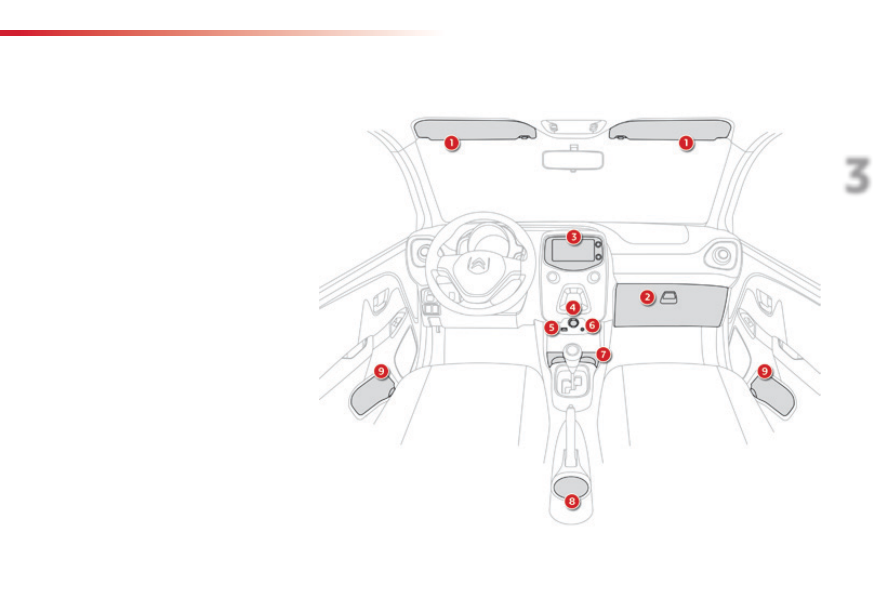Citroen C1 (2016 year). Manual - part 5

63
3
Ease of use and comfort
C1_en_Chap03_ergonomie-confort_ed01-2016
Front fittings
1.
Sun visor.
2.
Glove box.
3.
Audio system, touch screen tablet or
storage.
4.
12 volt accessory socket
(maximum 120 W).
Do not exceed the power rating to avoid
damaging your accessory.
5.
USB port.
6.
Auxiliary socket.
7.
Storage or cup holder.
8.
Cup holder.
9.
Door pockets.
Storage for a bottle of water.